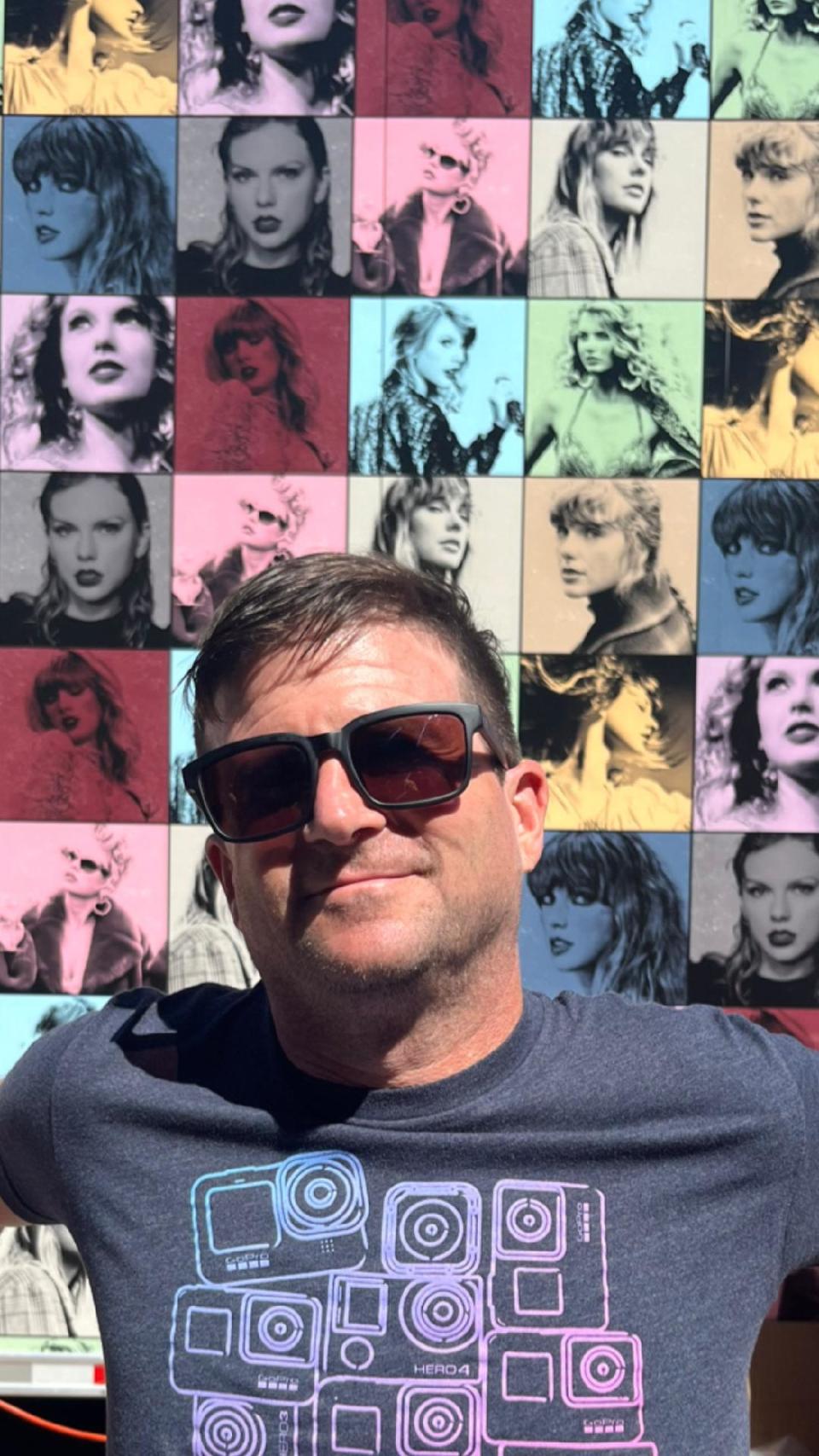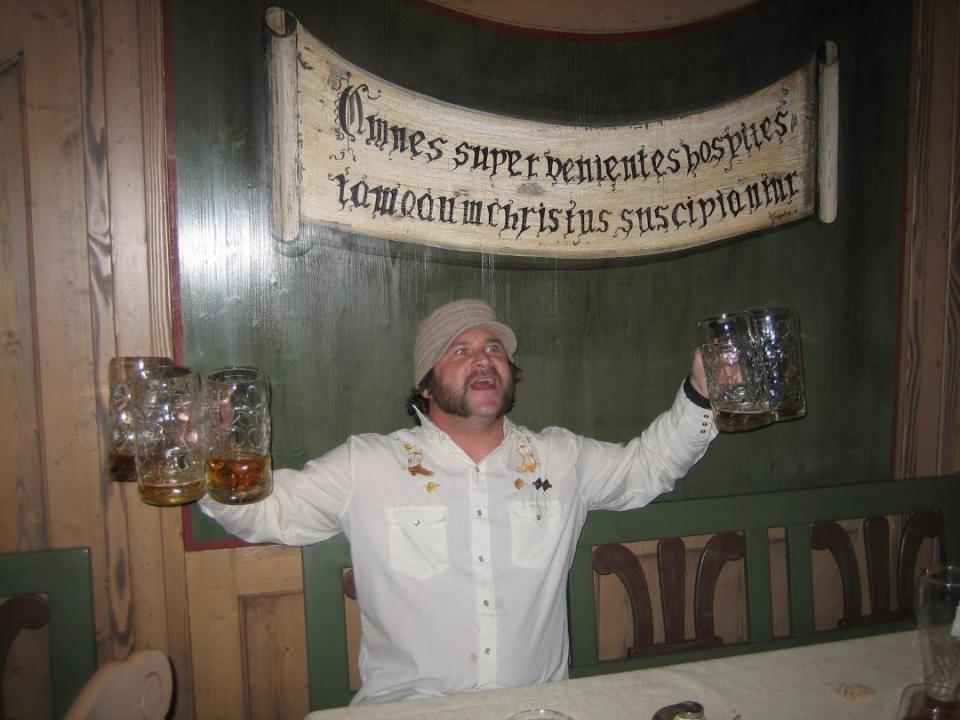'Trying to create a living history on the sports': Snow sports podcasts are gaining popularity all over

If you love ski podcasts, you've got to check out The Powell Movement, hosted by the irrepressible, encyclopedically knowledgeable, intensely personal and sometimes profane Mike Powell.
In a landscape cluttered by snow sports podcasts, Powell's raunchily double-entendre-named pod stands out for the incredibly wide range of elite skiers and snowboarders and other action sports athletes he interviews and also for the depth of research he does on each guest he has on the show, based in Seattle.
Ski podcasts flourish
The podcast is an irreverent complement to more sober-minded, ski business and consumer-oriented shows like the popular Storm Skiing Journal & Podcast series by the talented Stuart Winchester of Brooklyn, New York (who has kindly hosted me on his pod the last three years); the alternative-oriented Out of Bounds podcast from Adam Jaber of Wilbraham; the Boston Ski Party ski gear industry podcast from the lunatics at the Ski Monster shop in Boston; and the ultimate ski equipment insider pod Gear 30 from the Blister Reviews group in Crested Butte, Colorado.
When Powell, now 50, a native of McLean, Virginia, who moved to Washington to work for K2, started podcasting, the podcast medium was not the mass phenomenon it is today and snow sports podcasts were few.
After an 15-year stint at K2 Skis culminating as global marketing and licensing manager, among other roles, Powell left the corporate outdoor industry world and set out to be a full-time podcaster. Now, he has some serious outdoor industry sponsors and makes a good living doing the podcast as a one-man operation — compared to many other pods with dedicated audio and production and marketing specialists and teams.
"Many different titles, one small salary," Powell told me. "I've made it a job doing the podcast, but I put in eight years building it from pretty much nothing to where it is today."

In recent years, Powell's sponsors have been Elan Skis, Outdoor Research outerwear, Stanley drinkware, Peter Glenn Ski & Sports and Best Day Brewing.
Over the years, in 367 podcast episodes, Powell has drawn on his contacts from his years in the business to wrangle top guests from the worlds of freestyle and extreme skiing, ski movie athletes, film and video creators, ski journalists, elite ski racing and marketers and popularizers of various aspects of the more creative communities in skiing — and sometimes snowboarding and other sports like climbing and in-line skating.
Vast pool of guests
Some of his guests — like Olympic and World Cup champion ski racer Ted Ligety and ski freestyle icon Wayne Wong — achieved mass success, but many of his guests are uber-influential and well-known mainly in their special niches in the snow sports world. Guests like these include the great ski filmmaker Todd Jones, founder of Teton Gravity Research, and pro backcountry and freestyle stars like Chris Rubens, Ingrid Backstrom and Tanner Hall.
The tales about the athletes' pro careers and accompanying glory, hardships and injuries are compelling. And Powell adds a unique twist to the end of each episode in the form of "inappropriate questions" in which has a close friend of the guest ask three usually embarrassing or really funny questions about things in the guest's past, often involving naughty behavior.
Another signature move on The Powell Movement often comes during the intro when Powell opens up about the heart-wrenching challenges of his wife dealing with cancer, or problems with the family's cars.
But what most distinguishes Powell's body of work, in my opinion, is that the rich narratives he pulls, and sometimes pries, from his panoply of guests, comprise a rich oral history of the most creative, advanced and inspiring corners of the ski world starting mainly in the 1990s with the birth of the modern freeriding and snowboarding movement, progression of ski and snowboard movies and videography and rise of big mountain or extreme skiing and riding.
"I'm trying to create a living history on the sports," Powell said. "When I hit episode 1,000, I'm going to have had so many different people that are going to really tell the whole story of skiing."
Powell knows more than anyone else about all the interwoven strands of these various cultures, both from his own knowledge and participation in the business and extensive, almost journalistic research.
He says he puts in as much as 10 hours a week researching his subjects, even those who he knows personally and there are a lot of those. And he works 40 to 50 hours a week scheduling, interviewing and then editing the episodes.
"Everybody's got a story that's kind of cookie cutter. And then you got to dig in to get the nooks and crannies to figure out the stuff," Powell said. "So if I have to call someone's cousin, sometimes I do, to get that detail that makes the podcast that much better."
"It's a regular job — a regular job with my name on it. So I'm going to go above and beyond in terms of research in terms of everything that I do with it," he said. "I want it to be great. And it's something that I'm passionate about as well. I feel like it's my duty to my guests to research to them in a proper way that gives them a great interview because I want every interview to be the one that they show everybody else.
"I know everybody's going to do interviews with other podcasts. I just want mine to be better."
Beware in the backcountry and out of bounds
The out-of-bounds fiasco that happened at Killington the frigid weekend of Jan. 20-21 should be a cautionary lesson for skiers who like to ski in the woods.
That situation, involving more than 20 skiers and snowboarders who either disregarded ski area boundary limits or simply got lost in the woods but didn't mean to venture into prohibited territory, ended well with everyone rescued unhurt.
But a tragic episode in the White Mountains backcountry of New Hampshire in which an experienced hiker and guide, Christopher Roma, was found dead of exposure on Jan. 18, is even scarier because Roma's backwoods pedigree. The 37-year-old had completed the "triple crown of hiking," finishing the country's three major long-distance hiking trails: the Appalachian Trail, Continental Divide Trail and Pacific Coast Trail.
Roma was found in a remote stretch of trail near Mount Guyot, one of New Hampshire's 48 4,000-foot-plus mountains.
Maybe the lesson of Roma's death is to never be afraid to turn back, no matter how experienced or brave you are.
The Killington situation is murkier because it is possible to not see boundary signs and ski areas can't mark the entirety of their boundaries.
But do know this.
Don't ski or ride out of bounds unless it's a designated backcountry area like Tuckerman Ravine or the Gulf of Slides on Mount Washington, one of the many gladed forest zones that have been legally cleared by groups like the Granite Backcountry Alliance or Western Massachusetts Backcountry Alliance, or a ski area's own designated sidecountry or backcountry such as Sugarloaf's Burnt Mountain and Brackett Basin.
For people who crave adventure there's plenty of mapped-out, accessible backcountry in New England. Yes, that can be dangerous too. But it's allowed, and much of it is patrolled.
In the Killington case, the ski area — which reportedly fired an employee who allegedly ducked a boundary rope — was not and should not have been responsible for the carelessness or willful recklessness of the skiers and riders who ventured into woods they did not have the skill, preparation or right to ski.
—Contact Shaun Sutner by e-mail at s_sutner@yahoo.com.
This article originally appeared on Telegram & Gazette: Ski podcasts are gaining popularity all over

